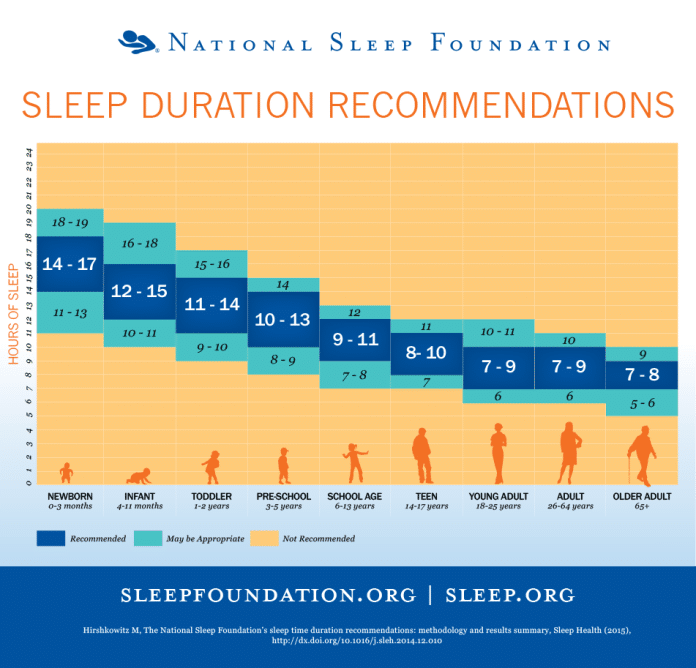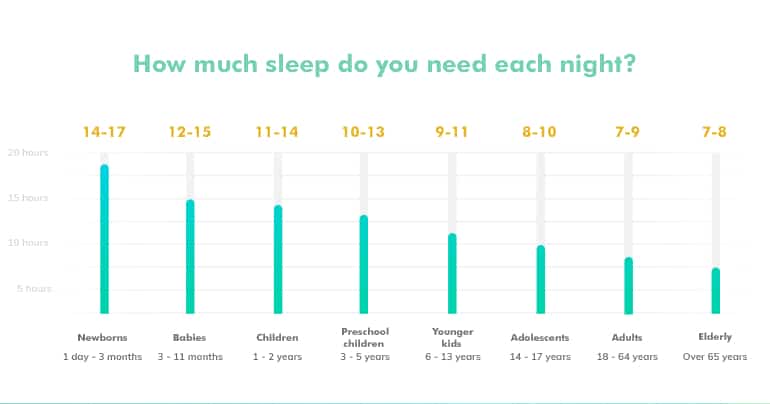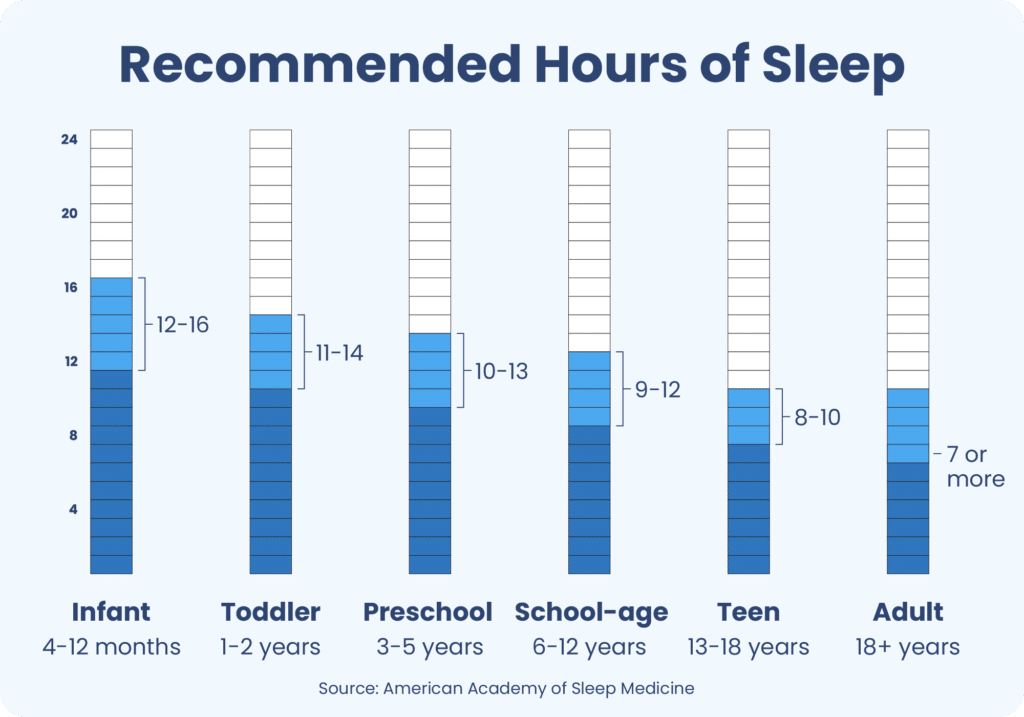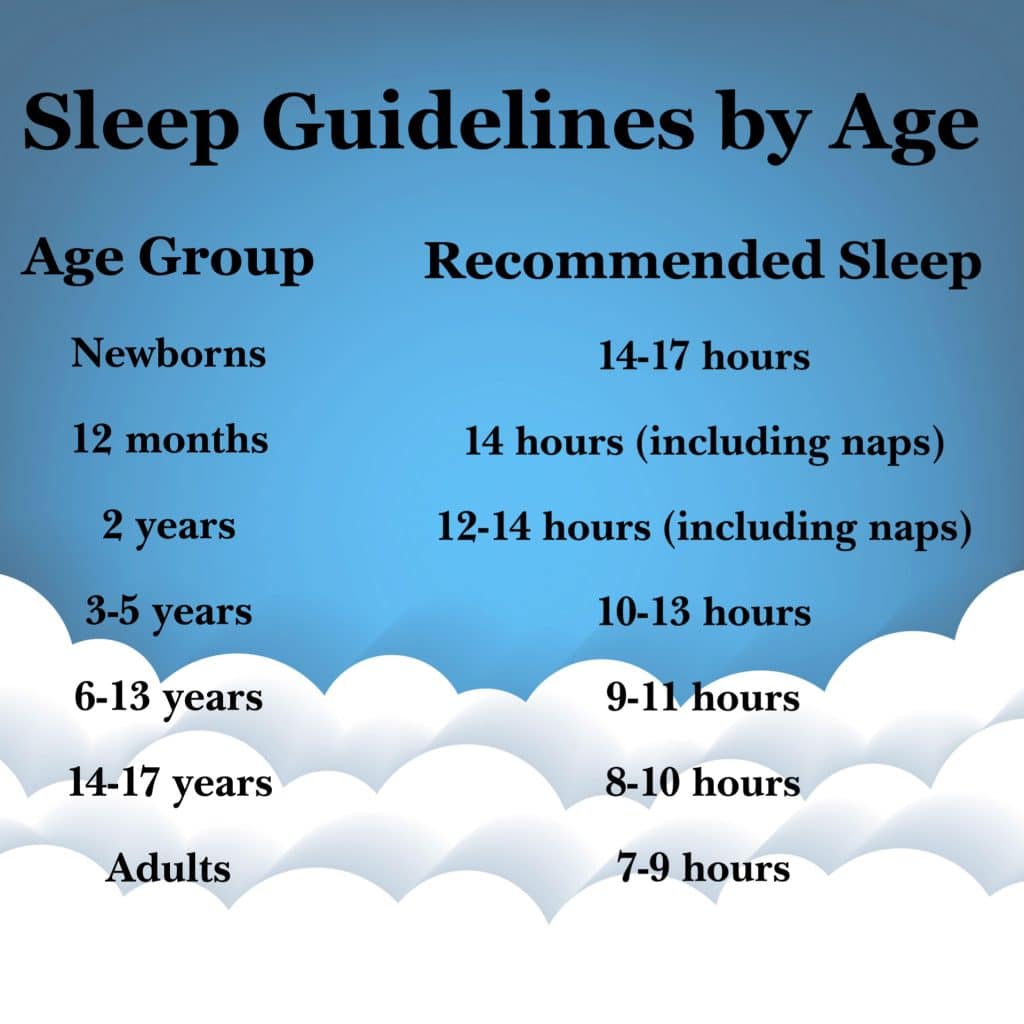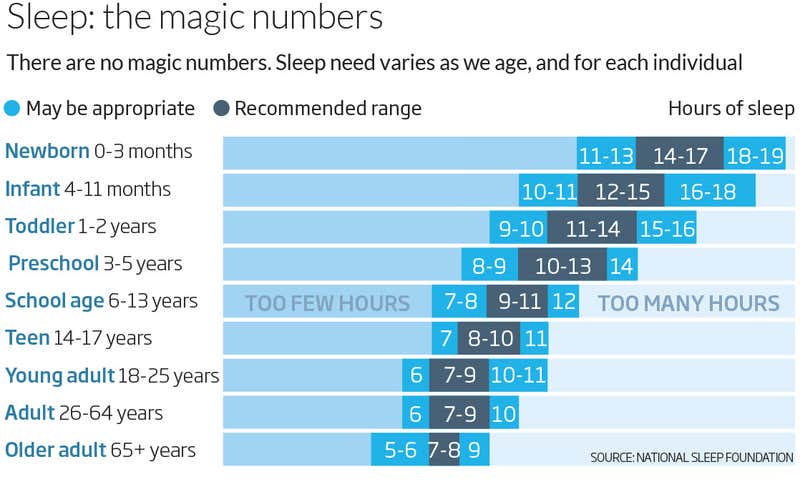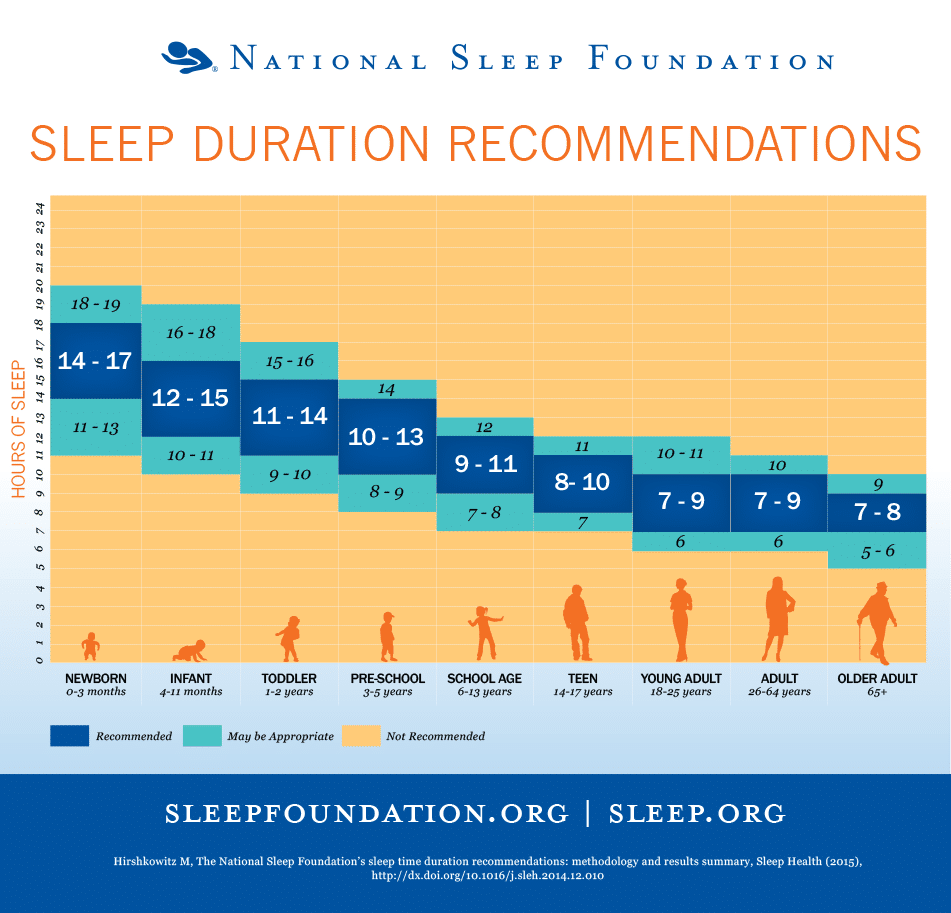Have you ever wondered how much sleep you really need each night? It’s a question that many of us ponder but one that often goes unanswered. In our fast-paced and busy lives, it’s crucial to prioritize our sleep for optimal health and well-being. In this article, we will explore the importance of sleep and provide you with the essential guidelines to determine the perfect amount of sleep for you. So, get ready to discover the science behind a good night’s sleep and take control of your sleep habits for a more energized and productive life.
Review contents
Factors affecting sleep needs
Sleep plays a crucial role in our overall well-being, and the amount of sleep we require can vary based on several factors. These factors include age, activity level, health condition, and lifestyle choices. Understanding these factors and their impact on sleep needs can help us prioritize and maintain a healthy sleep schedule.
Age
Age is one of the primary factors that affect sleep needs. Newborns, infants, toddlers, children, teenagers, young adults, adults, and older adults all have different sleep requirements. This is mainly because sleep patterns and brain development vary significantly throughout different stages of life.
Activity level
Another factor that affects sleep needs is the level of activity in our daily lives. Engaging in physical activities or having a demanding job can increase our sleep needs, as our bodies require more time to rest and recover. On the other hand, those with sedentary lifestyles may need less sleep to function optimally.
Health condition
Sleep needs can also vary depending on an individual’s health condition. Certain medical conditions and chronic illnesses may disrupt sleep patterns and require special attention. For example, those with sleep disorders like insomnia or sleep apnea may require more sleep or specific interventions to ensure quality rest.
Lifestyle choices
Lastly, lifestyle choices can significantly impact our sleep needs. Factors like diet, caffeine consumption, alcohol intake, and exposure to electronic devices before bedtime can interfere with our ability to fall asleep and stay asleep. Maintaining healthy lifestyle choices can contribute to better sleep quality and overall well-being.
Sleep requirements by age group
Sleep requirements vary throughout different age groups due to the ongoing development of the body and brain. Here is a breakdown of the recommended sleep durations for each age group:
Newborns (0-3 months)
Newborns require the most sleep, with an average of 14-17 hours of sleep per day. However, their sleep tends to be fragmented, with periods of wakefulness for feeding and diaper changes.
Infants (4-11 months)
Infants typically need about 12-15 hours of sleep per day. They usually have longer stretches of sleep at night and typically take naps during the day.
Toddlers (1-2 years)
Toddlers generally need around 11-14 hours of sleep per day. They might start transitioning from two naps to one nap during this stage.
Preschoolers (3-5 years)
Preschoolers require approximately 10-13 hours of sleep per day. Most children in this age group no longer take regular naps but benefit from quiet time or rest periods during the day.
School-age children (6-13 years)
School-age children typically need 9-11 hours of sleep per day. With the demands of school, extracurricular activities, and homework, it’s essential to prioritize adequate sleep during this stage.
Teenagers (14-17 years)
Teenagers usually need 8-10 hours of sleep per day. However, due to school schedules and social activities, many adolescents struggle to meet their sleep needs, leading to a sleep deficit.
Young adults (18-25 years)
Young adults require 7-9 hours of sleep per day, similar to adults. However, lifestyle factors such as work, education, and social life may influence their ability to consistently achieve recommended sleep durations.
Adults (26-64 years)
Adults typically need 7-9 hours of sleep per day. However, individual sleep needs can vary within this age range.
Older adults (65+ years)
Older adults may need slightly less sleep, averaging around 7-8 hours per day. However, changes in sleep patterns and the prevalence of sleep disorders become more common in this age group.
Effects of insufficient sleep
Not getting enough sleep can have various detrimental effects on our physical and mental health. Here are some of the possible consequences of inadequate sleep:
Cognitive impairment
Lack of sleep can lead to difficulty concentrating, decreased alertness, and impaired memory formation. It can also affect decision-making abilities and problem-solving skills.
Mood disturbances
Insufficient sleep is often associated with mood swings, irritability, increased stress levels, and a higher risk of developing mental health conditions such as anxiety and depression.
Weakened immune system
Sleep deprivation can compromise our immune system, making us more susceptible to infections, viruses, and other illnesses. It also reduces our body’s ability to recover and heal.
Increased risk of chronic diseases
Chronic sleep deprivation has been linked to an increased risk of developing conditions such as obesity, diabetes, heart disease, hypertension, and certain types of cancer.
Accidents and decreased productivity
Lack of sleep can impair our motor skills, reaction times, and overall cognitive performance, leading to an increased risk of accidents and decreased productivity in both personal and professional settings.
It’s important to prioritize sufficient sleep to mitigate these potential negative effects and promote optimal health and well-being.
Dangers of oversleeping
Although insufficient sleep is commonly discussed, oversleeping can also have adverse effects on our health. While occasional bouts of extended sleep may occur, consistently oversleeping can lead to the following risks:
Cognitive dysfunction
Oversleeping has been found to cause cognitive impairments similar to those seen with sleep deprivation. It can lead to difficulties with focus, memory, and overall cognitive function.
Depression and anxiety
Long periods of excessive sleep have been associated with an increased risk of developing or exacerbating symptoms of depression and anxiety disorders.
Increased risk of obesity and diabetes
Research suggests that sleeping for extended periods consistently can lead to weight gain and an increased risk of obesity. It may also contribute to a higher likelihood of developing type 2 diabetes.
Cardiovascular diseases
Oversleeping has been linked to an increased risk of cardiovascular issues, including heart disease, stroke, and irregular heart rhythms. This connection highlights the importance of maintaining a balanced sleep schedule.
While occasional extra sleep may be beneficial, consistently oversleeping can be detrimental to our overall health. It’s essential to find a balance and listen to what our body needs.
Recommended sleep duration
Several organizations provide guidelines on recommended sleep durations based on age groups and individual needs. Here are some notable recommendations:
National Sleep Foundation guidelines
The National Sleep Foundation suggests the following sleep durations:
- Newborns (0-3 months): 14-17 hours
- Infants (4-11 months): 12-15 hours
- Toddlers (1-2 years): 11-14 hours
- Preschoolers (3-5 years): 10-13 hours
- School-age children (6-13 years): 9-11 hours
- Teenagers (14-17 years): 8-10 hours
- Young adults (18-25 years): 7-9 hours
- Adults (26-64 years): 7-9 hours
- Older adults (65+ years): 7-8 hours
American Academy of Sleep Medicine guidelines
The American Academy of Sleep Medicine provides the following sleep duration recommendations:
- Newborns (0-3 months): 14-17 hours
- Infants (4-11 months): 12-15 hours
- Toddlers (1-2 years): 11-14 hours
- Preschoolers (3-5 years): 10-13 hours
- School-age children (6-12 years): 9-12 hours
- Teenagers (13-18 years): 8-10 hours
- Adults (18+ years): 7-9 hours
Centers for Disease Control and Prevention guidelines
The Centers for Disease Control and Prevention recommend the following sleep durations for different age groups:
- Newborns (0-3 months): 14-17 hours
- Infants (4-12 months): 12-16 hours
- Toddlers (1-2 years): 11-14 hours
- Preschoolers (3-5 years): 10-13 hours
- School-age children (6-12 years): 9-12 hours
- Teenagers (13-18 years): 8-10 hours
- Adults (18+ years): 7 or more hours
World Health Organization guidelines
The World Health Organization suggests the following sleep duration recommendations:
- Newborns (0-3 months): 14-17 hours
- Infants (4-11 months): 12-15 hours
- Toddlers (1-2 years): 11-14 hours
- Preschoolers (3-4 years): 10-13 hours
- School-age children (5-17 years): 9-11 hours
- Adults (18-64 years): 7-9 hours
- Older adults (65+ years): 7-8 hours
These guidelines serve as a general framework for promoting healthy sleep habits. However, individual variations and personal needs should also be considered.
Sleep needs for athletes
Athletes, both professional and recreational, have specific sleep requirements to support their physical performance, injury prevention, and recovery. Adequate sleep is crucial for their overall athletic performance and well-being. Here are some key considerations:
Physical performance
Quality sleep plays an essential role in optimizing physical performance for athletes. It helps with reaction times, coordination, and muscle recovery. Insufficient sleep can lead to decreased endurance, strength, and overall athletic performance.
Injury prevention and recovery
Proper sleep is vital for injury prevention and recovery. During sleep, the body repairs damaged tissues, replenishes energy stores, and regulates hormones critical for muscle growth and repair. Insufficient sleep can hinder these crucial processes, leading to a higher risk of injuries and slower recovery times.
Optimal sleep duration
While the recommended sleep durations for athletes align with general guidelines for their respective age groups, individual athletes may have unique sleep needs. Factors such as training load, competition schedules, and recovery demands should be taken into account when determining the optimal sleep duration for athletes.
Tips for improving sleep quality
Regardless of age or lifestyle, improving sleep quality should be a priority for everyone. Here are some tips to enhance your sleep quality:
Maintain a consistent sleep schedule
Establishing a regular sleep schedule can help regulate your body’s internal clock and promote better sleep. Try to go to bed and wake up at the same time every day, even on weekends.
Create a sleep-friendly environment
Make your sleep environment conducive to rest by ensuring a comfortable mattress and pillows, minimizing noise and light, and maintaining an optimal room temperature.
Limit exposure to electronic devices
The blue light emitted by electronic devices can interfere with your natural sleep patterns. Avoid using electronic devices like smartphones, tablets, and computers at least an hour before bedtime.
Exercise regularly but not before bedtime
Regular physical activity can improve sleep quality. However, try to avoid vigorous exercise or intense workouts close to bedtime, as they can stimulate your body and make it harder to fall asleep.
Avoid caffeine and heavy meals close to bedtime
Caffeine acts as a stimulant and can interfere with falling asleep. Limit your consumption of caffeine-containing beverages or avoid them altogether, especially in the evening. Additionally, avoid heavy meals close to bedtime, as they can cause discomfort and disrupt sleep.
By incorporating these tips into your routine, you can improve your sleep quality and reap the many benefits of a restful night’s sleep.
Sleep and mental health
Sleep and mental health are closely intertwined. Poor sleep can contribute to the development or exacerbation of mental health conditions, while mental health issues can disrupt sleep patterns. Here are some examples of how sleep relates to mental health:
Depression
Sleep problems, such as insomnia or excessive sleep, are often associated with depression. Difficulty falling asleep, staying asleep, or feeling excessively tired during the day can be symptoms of depression. Addressing and improving sleep can be an essential part of managing depression.
Anxiety disorders
Anxiety disorders, such as generalized anxiety disorder, panic disorder, and post-traumatic stress disorder, can significantly impact sleep quality. Worries, racing thoughts, and physical symptoms of anxiety can make it challenging to fall asleep or stay asleep throughout the night.
Bipolar disorder
People with bipolar disorder may experience disruptions in sleep patterns during manic or depressive episodes. Insomnia and decreased need for sleep are common during manic phases, while excessive sleep or hypersomnia can occur during depressive episodes.
Schizophrenia
Schizophrenia is often associated with sleep disturbances. Individuals with schizophrenia may experience difficulties falling asleep, disrupted sleep architecture, and decreased sleep efficiency. These sleep problems can exacerbate symptoms of schizophrenia and impact overall well-being.
Improving sleep quality and addressing sleep problems can be an essential aspect of managing mental health conditions. Seeking professional help and treatment is crucial for individuals experiencing sleep-related mental health challenges.
Sleep disorders and their impact on sleep needs
Several sleep disorders can significantly impact an individual’s sleep needs and overall well-being. Understanding these disorders is essential for recognizing potential issues and seeking appropriate treatment. Here are some common sleep disorders and their impact on sleep:
Insomnia
Insomnia is a sleep disorder characterized by difficulty falling asleep, staying asleep, or having poor-quality sleep. It can lead to excessive daytime sleepiness, irritability, and diminished cognitive function. Managing underlying causes and implementing good sleep hygiene practices can help improve insomnia symptoms.
Sleep apnea
Sleep apnea is a condition that causes interruptions in breathing during sleep. These interruptions can lead to frequent awakenings, fragmentation of sleep, and decreased oxygen levels in the body. The most common type of sleep apnea, obstructive sleep apnea, requires medical intervention for effective treatment.
Narcolepsy
Narcolepsy is a neurological disorder characterized by excessive daytime sleepiness and sudden episodes of falling asleep. Individuals with narcolepsy may experience cataplexy (sudden loss of muscle control), hallucinations during sleep onset, and disrupted nighttime sleep. Treatment typically involves a combination of medication and lifestyle modifications.
Restless Legs Syndrome
Restless Legs Syndrome (RLS) is a condition characterized by an uncomfortable sensation in the legs, often accompanied by an irresistible urge to move them. Symptoms typically worsen at night, making it challenging to fall asleep or stay asleep. Identifying and treating underlying causes can help manage RLS symptoms.
REM sleep behavior disorder
REM sleep behavior disorder (RBD) is characterized by vivid, often violent, dreams and the absence of muscle paralysis during REM (rapid eye movement) sleep. This can result in physically acting out dreams, potentially causing injury to oneself or sleep partners. Medical intervention is necessary to address the underlying causes and prevent harm.
Sleepwalking
Sleepwalking, or somnambulism, is a sleep disorder characterized by walking, talking, or engaging in complex behaviors during sleep. Sleepwalkers are in a state of partial wakefulness, and their actions can range from harmless to potentially dangerous. Safety measures and creating a sleep-friendly environment can help manage sleepwalking.
Nightmares and night terrors
Nightmares and night terrors are sleep disorders that involve intense and terrifying dreams during sleep. Nightmares typically occur during REM sleep and can cause significant distress upon awakening. Night terrors, on the other hand, are characterized by sudden awakenings accompanied by fear or panic, often accompanied by screaming or shouting. Creating a calming bedtime routine and addressing underlying anxieties can help manage nightmares and night terrors.
If you suspect you may have a sleep disorder, it is important to consult with a healthcare professional for an accurate diagnosis and appropriate treatment.
Consulting a healthcare professional
When it comes to sleep health, seeking guidance from a healthcare professional is essential to address individual needs and concerns. Here are some reasons why consulting a healthcare professional is beneficial:
Obtaining personalized recommendations
A healthcare professional can evaluate your sleep habits, medical history, and lifestyle to provide personalized recommendations for improving sleep. They can address any specific sleep concerns, provide guidance on establishing healthy habits, and suggest appropriate interventions for managing sleep disorders, if present.
Seeking treatment for sleep disorders
Sleep disorders can significantly impact sleep quality, overall health, and quality of life. A healthcare professional can help diagnose sleep disorders, recommend appropriate treatments, and provide ongoing support to manage symptoms effectively.
Regular check-ups with your healthcare provider should include discussions about sleep patterns and any concerns or difficulties you may be experiencing. Open communication and collaboration with healthcare professionals are vital for maintaining optimal sleep health.
In conclusion, understanding the factors that affect sleep needs and the importance of prioritizing quality sleep is crucial for overall health and well-being. By considering age, activity level, health conditions, and lifestyle choices, individuals can tailor their approach to sleep and make informed decisions to support their sleep needs. Maintaining consistent sleep schedules, creating a sleep-friendly environment, and adopting healthy sleep habits can enhance sleep quality. Additionally, consulting with healthcare professionals can provide personalized guidance, ensure the management of sleep disorders, and support overall sleep health. Prioritizing sleep and recognizing its impact on both physical and mental health is an essential step towards living a healthier and more fulfilling life.

